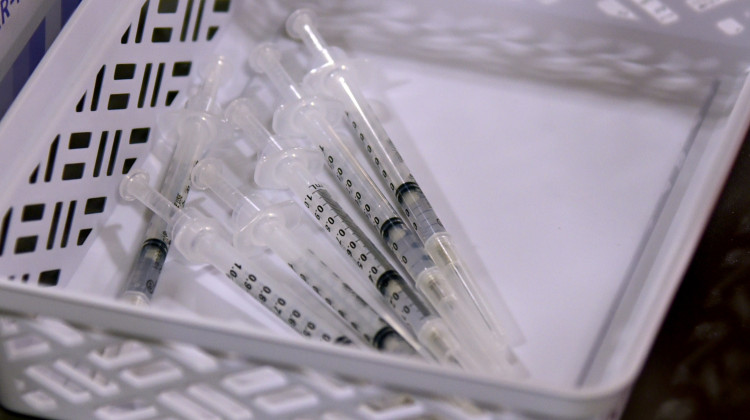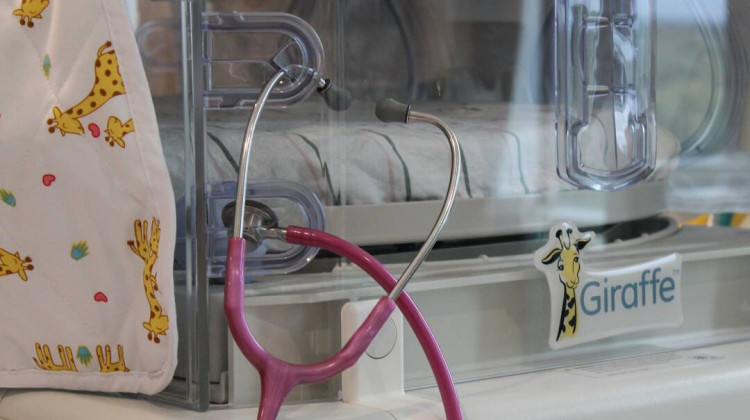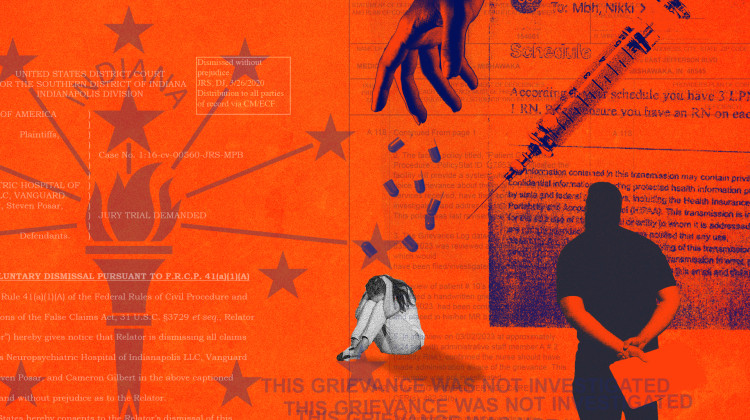
Indiana health experts are raising concerns about the number of children meeting the state’s vaccine recommendations.
File Photo: Justin Hicks / IPB NewsVaccination rates for Indiana toddlers have fallen since before the pandemic.
Some health experts worry that growing distrust of vaccines is partly behind that drop.
Before the pandemic, some 70% of Indiana children had received the recommended vaccines by 35 months.
The state recommends vaccines for things like polio, measles, and mumps.
But so far in 2024, roughly 58% of Indiana children in that age group have received their recommended vaccines.
Dr. Robert Frenck, the director of the Vaccine Research Center at Cincinnati Children’s Hospital, said it’s likely people fell behind on their routine vaccinations because of the pandemic –– but those numbers need to go back up.
“If we continue to have vaccine rates fall, we'll continue to have bigger and bigger outbreaks, and what's going to happen is that children are going to die. That could have been prevented by having vaccines that are very safe, very effective, very well-tested,” Frenck said.
Frenck said another important data point to pay attention to is the vaccination rates among kindergarteners. That’s because individual families can fall behind on vaccines but schools require students to be vaccinated.
Frenck believes vaccine hesitancy is an outgrowth of people who haven’t seen the diseases they are vaccinating against.
“People don't see the benefit, they see the risk, and they don't understand that if they don't vaccinate, they're going to see the risks, and you don't want to see that again,” he said.
In Indiana, kindergarteners had a 94% vaccination rate for measles, mumps, and rubella during the 2019-2020 school year. The most recent data show that number has fallen to 90%.
Nationally, routine vaccinations for kindergarten students have ticked downwards too since before the pandemic, and aren’t showing signs of rebounding.
According to KFF, during the 2022-2023 school year, 12 states had vaccination rates for measles, mumps, and rubella below 90%. During the 2019-2020 school year, just three states were not hitting 90%.
Dr. Shannon Dillon, a pediatrician at Riley Children’s Health, said she’s concerned by the drop in childhood vaccination rates.
“We're definitely starting to see some of the vaccine hesitancy that develops around the COVID-19 vaccine spreading over into the routine childhood vaccines,” she said.
School exemptions for vaccinations have also been on the rise. In the 2018-2019 school year, just 1% of students were granted either religious or medical exemptions for vaccines.
During the 2022-2023 school year that number had jumped to 1.4% of students. Those numbers aren’t as high as some states, such as Florida, which saw some 4.5% of kindergarten students receive exemptions in 2023.
“Vaccines are critical, and if we let our vaccine rates drop, we're going to see outbreaks,” said Frenck. “It's not if, it's when.”
Contact Health Reporter Ben Thorp at bthorp@wfyi.org.
 DONATE
DONATE






 Support WFYI. We can't do it without you.
Support WFYI. We can't do it without you.